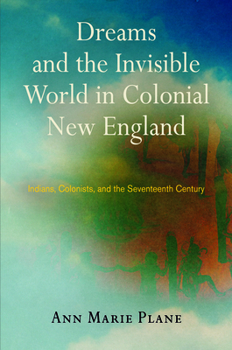Dreams and the Invisible World in Colonial New England: Indians, Colonists, and the Seventeenth Century
From angels to demonic specters, astonishing visions to devilish terrors, dreams inspired, challenged, and soothed the men and women of seventeenth-century New England. English colonists considered dreams to be fraught messages sent by nature, God, or the Devil; Indians of the region often welcomed dreams as events of tremendous significance. Whether the inspirational vision of an Indian sachem or the nightmare of a Boston magistrate, dreams were treated with respect and care by individuals and their communities. Dreams offered entry to "invisible worlds" that contained vital knowledge not accessible by other means and were viewed as an important source of guidance in the face of war, displacement, shifts in religious thought, and intercultural conflict.
Using firsthand accounts of dreams as well as evolving social interpretations of them, Dreams and the Invisible World in Colonial New England explores these little-known aspects of colonial life as a key part of intercultural contact. With themes touching on race, gender, emotions, and interior life, this book reveals the nighttime visions of both colonists and Indians. Ann Marie Plane examines beliefs about faith, providence, power, and the unpredictability of daily life to interpret both the dreams themselves and the act of dream reporting. Through keen analysis of the spiritual and cosmological elements of the early modern world, Plane fills in a critical dimension of the emotional and psychological experience of colonialism.Related Subjects
History




